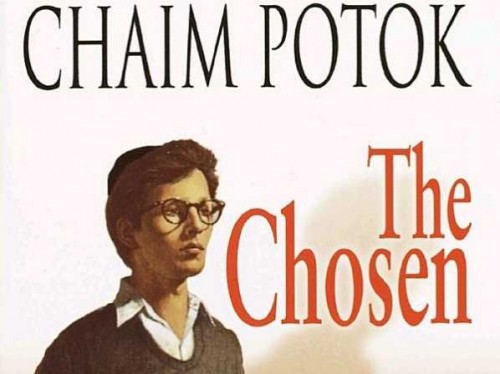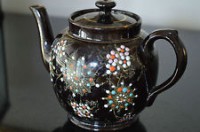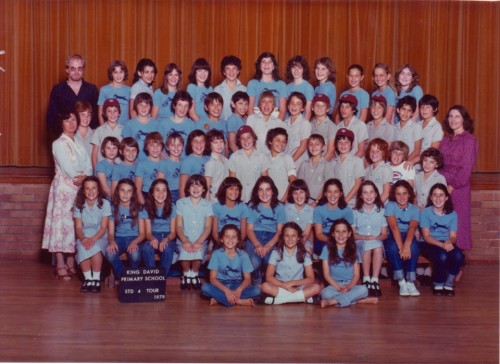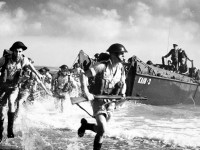
******************
From now on, let’s say, I’m only going to acquire my books at Garage Sales. And then I’m going to write about them. This, then, is the first in a series I’m super psyched about. And I think I’m going to use this opportunity, also, to get serious and personal. Well, kind of,….
******************

worth about $20
Okay, so a few days ago I bought Chaim Potok’s “The Chosen” at a yard sale close to my house. (Lately, on weekends, I’ve been trolling the neighborhoods because my wife collects teapots and it’s romantic to bring her home something nice. Last week I found a teapot it turns out was made in 1906. It’s worth about $20. Sometimes my wife, Edith, and I go hunting together and that, maybe, is the best).
When I asked the old man standing behind the table with just six books spread over it how much he wanted for “The Chosen” he took a few moments and then replied, “I dunno, how about two bucks?” I quickly countered with a shrug. And then: “how about a dollar?” And the book was mine! (note: this is how “the game” works at Garage Sales. Plus, I’m Jewish. Well, I was born into a Jewish family. I still identify, culturally. Blah. Blah. It’s complicated.)
******************
The book is about fathers and sons. About duty. Forgiveness. Friendship. War. Inheritance. And respect. I mean I’m only about a quarter of the way into it but this is what I think it’s about. . . . And, o, yeah, it seems to be about religion and patriotism too. . . .And it’s made me think, more than usual, of my own life!
Of my childhood. Of my upbringing. Maybe this is because the narrator’s name is Reuven. My Hebrew name is Reuven too. The book (The Chosen) was published in 1967. I was born, also, in 1967, in Johannesburg, South Africa, where, several years later, I attended King David Victory Park. And there, as a matter of course, the essential importance of Judaism as well as Israel was strongly impressed upon me and the rest of the young students.

can you find Reuven (Rauan) here ?? (hint: glasses)
******************
After Reuven, 15 year old Reuven, gets hit in the face during a baseball game where not-so religious and really religious Jews are squaring off, he goes to a local Brooklyn hospital and has to have a bit of glass removed from his eye. He is concerned that he will lose the eye. In fact he is really frightened about this. I don’t know if this happens or not because I haven’t read far enough yet. When I was a little boy I had a really “lazy” left eye and for a year I had to wear a patch over it. I also had an operation to tighten the eye.
******************
Much happens during Reuven’s hospital stay.
Ernest Hemingway’s “A Farewell To Arms,” gets mentioned, for example. Specifically, I’m talking about the scene near the end where the ants are crawling around on a burning log and the narrator, instead of taking the log out of the fire, pours water on the fire which, then, causes the ants to be steamed to death. Chaim Potoch, I’m guessing, admired Hemingway’s writing quite a bit. “The Chosen” utilizes a spare style and narrative pacing reminiscent of good Ernest Hemingway. Who doesn’t admire and envy, even a little, good old Ernest Hemingway?
******************

D-Day on the radio
In the bed next to Reuven is a young, blind boy named Billy. The narrator observes Billy’s “beautiful” face. He is made to seem angelic. Reuven’s father leaves a radio at the hospital and they listen to live reports about D-Day. There is a beautiful scene where the narrator, Reuven, is looking at Billy’s face and then he notices a man coming up the aisle between the beds. And it is his father. And he is sad to see his father looking tired.
************
My dad and I are really close. I give him a hard time and then he says things like “some one ought to put a bullet in you.” When I tell people about my father I usually make a point of telling them about the bullet. Sometimes, instead, he says: “some one ought to put a knife in you.”
******************
. . . . .I am wondering if Reuven, the narrator, loses that eye or not. . . .I am wondering about violence. . Cruelty. . . How it all works out. . . .I love my dad.
Tags: chaim potok, garage sale reads, the chosen

please keep us posted about Reuvens eye
after reading a bit further on I am happy to report that, for now at least, Reuven’s eye seems to be ok. he has a follow up appointment in about 10 days. so, fingers crossed. :)
i remember reading The Chosen as a kid
my mom was a children’s librarian – she must have handed it to me
my dad’s mom was jewish, so i guess he was jewish (not religious, tho, but def he ‘identified’ as)
i’m totally into used books – i know all the ‘free tables’ etc in the East Bay
that teapot is nice
i love hemingway
i have a friend whose mom won’t read hem because she says he’s an anti-semite
on this post I was going for all the demographics!! …. and, yes, I think the teapot’s the highlight of the post!
Do you pronounce your name ‘row un’ (‘row’ like ‘row a boat’), or ‘row ahn’ (‘row’ rhymes with ‘cow’, like Br. synonym for ‘angry argument’)? (I think the Welsh name ‘Rowan’ is pronounced the first way, but pretty sure I’d mispronounce a lot of words in Britain, like wor chester shire… ‘wooster sheer’ what.)
You had an enviably full beard as a youngster.
When Hemingway is good, he’s very very good. When he’s bad, it’s like an experiment in hostility towards the reader.
For me, the way Robert Cohn is made a Jew mars an otherwise perfect novel. It’s not like Cohn is a Jewish character among other characters who might or might not be Jewish; he’s directly (and a bit laboriously) drawn as the Jew. That he was a champ boxer with a punched nose… that’s part of the story’s disclosure of physical bravery, masculinity, and all that. But with this character, Hemingway indulges in racial caricature in a repulsive way.
Similarly, for me, admiration – the highest – for Eliot is tempered by consideration of his Venice poem (Burbank with a Baedeker: Bleistein with a Cigar). I mean, one can compartmentalize, separating taking pleasure in the craft from an odious sense… yes? or not so much?
i hear ya, but i think you’ve got the wrong Hemingway novel here! (Robert Cohn’s in The Sun Also Rises not A Farewell to Arms. Tho, interestingly, there is a boxer in the bed next to Reuven in the hospital. An Italian who loses an eye).
Compartmentalizing: yes/no. it’s complicated. :)
I pretty much go by “Ron” but my name’s meant to be pronounced the same way “Sean” would be in England, South Africa or Australia. It’s a hard vowel for Americans to get right so after I was here for a while I gave up correcting people and went with the less exotic “Ron.” (sigh)
I know the novels – didn’t mean to be talking about the novel you’d referred to, but rather, to mimi’s friend’s general self-prohibition. (I don’t think Farewell is better than ‘pretty good’ – not in Sun Also Rises‘s league.) I was just saying that Hemingway slightly ruined his best novel (that I’ve read) with a glaring case of what has fairly to be called “anti-Semitism”; her friend is right about that, but not about not reading Hemingway anyway.
sorry, man. misunderstood. hope I didn’t sound rude.
I haven’t read either novel in a while but I probably enjoyed A Farewell to Arms a bit more.
Was Hemingway perfect. Far from it. But what writer is ?? (in their person I mean ??). I dunno. It’s complicated.
I don’t like certain tennis players!
Not rude at all… and if I’d bungled novel titles, why not tease? What the hell.
I found spoiler killing the beloved character in Farewell pretty sentimental (albeit effective, okay), and the anti-war message a bit cheaply achieved. Sun Also Rises, I think, is legitimately uglier, and the writing is really-good-to-great.
Sure, most of us at least try to ‘read the book and not the author’; that’s a nearly-standard readerly rule.
But in the case of Robert Cohn, it is the book (or a part of it); it’s not Hemingway’s anti-Semitism that stinks (though to the extent that he was, I guess it must’ve), and it’s not the fact that a character who’s Jewish is a villainous wimp: it’s the fact that that villainous wimp is emblematically “a Jew”.
Bad show, Hem.
agree with you that Cohn is drawn directly as “the Jew” – def not admirable on hem’s part, but Not reason Not to read him imo
how do you feel about Shylock, deaders?
Rauan, sometimes i pronounce yr name in my head RAW-ann, and sometimes i pronounce it in my head RAW-enn, but never Row-ann or Row-enn, or Rawwwwn, or Ron,
or any other way, yo
it’s like Leicester Square –
“LESS-tuhr”, not “LICE-tuhr”
lernt ‘at fron dah, BEET-ulls, whot
or LIE-sess-terr
regardless, I’m glad my name’s getting some action!
yes, put me in the “lie” category